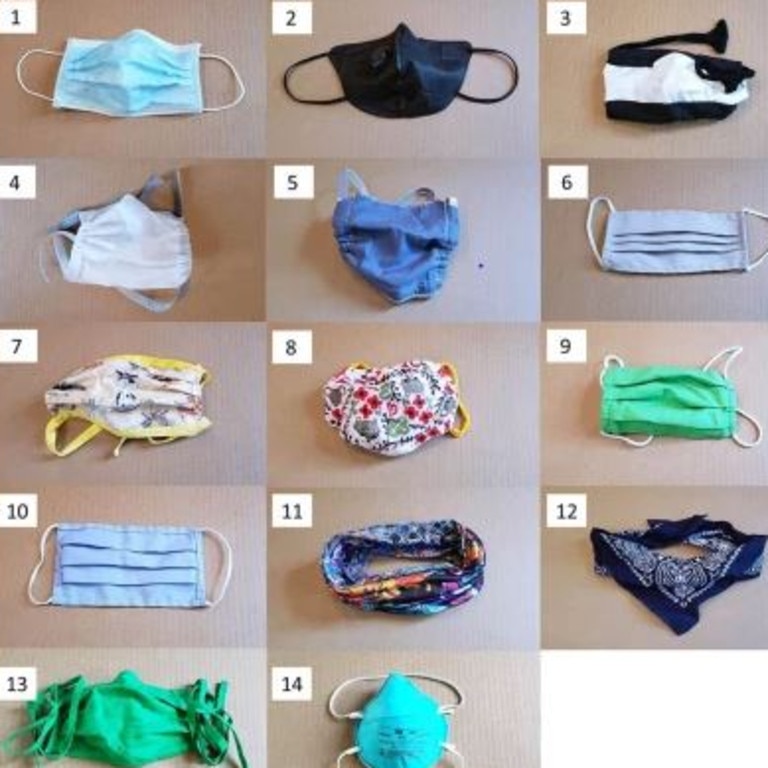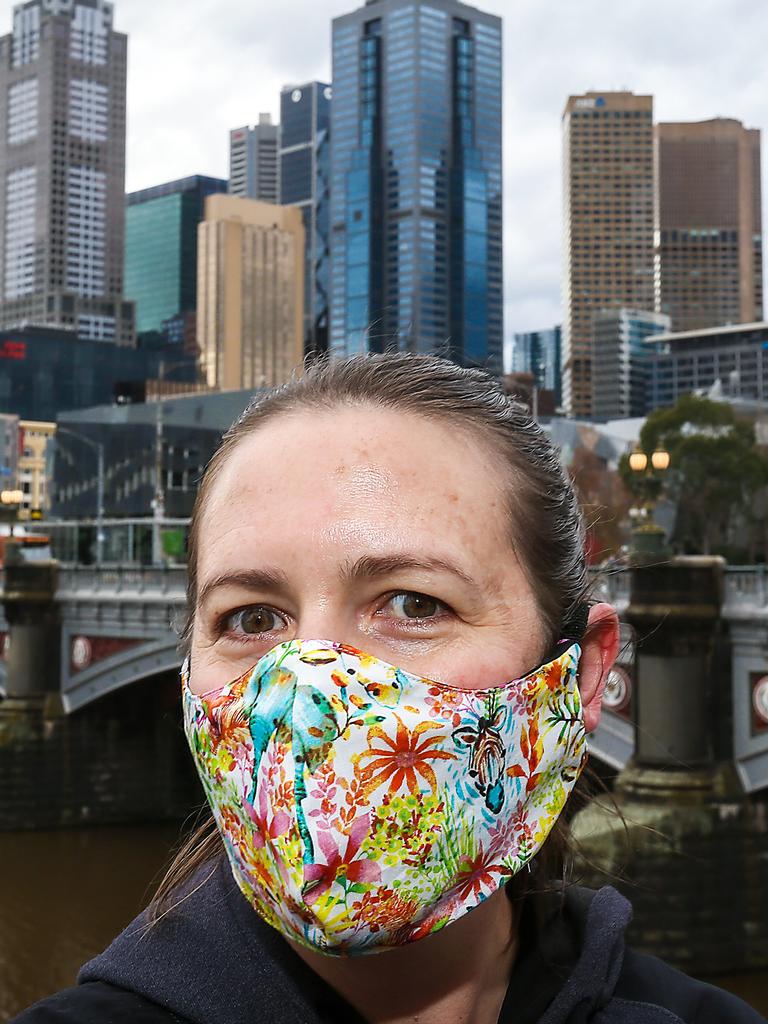Face mask you need to avoid, according to scientists
A new study that looked at 14 types of masks found one face covering actually increased your chances of spreading the virus.
With so many different face masks on the market you’d be forgiven for feeling confused about which one you should buy.
Fortunately a group of scientists have done the hard work for us, analysing 14 different face coverings to find out which are the most effective at preventing coronavirus – as well as types of masks you should avoid.
In a study published last Friday, researchers at Duke University in the United States found that N95 masks, typically worn by healthcare workers in hospital settings, were the best at stopping droplets.
RELATED: Follow the latest coronavirus updates

RELATED: What is the face mask rule in Australia?
Three-layer cotton masks and surgical masks the next best option and both were good at stopping particles from spreading.
But the worst face mask to wear was neck fleeces, which could allow more respiratory droplets to escape compared to if you weren’t even wearing a mask.
Typically worn by runners, neck fleeces broke down bigger droplets into small particles, allowing them to slip through the material more easily.
Also performing badly were bandannas or knitted face coverings which offered little to no protection.
One of the study’s authors Dr Martin Fischer told CNN it wasn’t only important to wear a face covering but also to “wear masks that actually work”.
“We were extremely surprised to find that the number of particles measured with the fleece actually exceeded the number of particles measured without wearing any mask,” he said.
RELATED: Best reusable face masks to buy

HOW MASKS WERE TESTED
To test each mask, scientists set up a phone camera and laser inside a black box.
Using the phone’s camera, a person wearing a mask spoke in the direction of the laser and the amount of respiratory drops were recorded.
A computer algorithm then analysed the camera footage to determine how many droplets had leaked through the mask.
Dr Fischer said the relatively simple test could be performed by mask manufacturers to test the effectiveness of their product before it is sold.
“This is a very powerful visual tool to raise awareness that very simple masks, like these homemade cotton masks, do really well to stop the majority of these respiratory droplets,” he told CNN.
“Companies and manufacturers can set this up and test their mask designs before producing them, which would also be very useful.”
RELATED: ‘Thoughtless’ Boomers are refusing to wear masks


DO I NEED TO WEAR A FACE MASK?
Victoria is the only state where face masks are now mandatory, with fines applying if you do not wear face coverings of some kind in public places.
In NSW, face masks are not legally required but are strongly recommended in places where it is difficult to social distance such as public transport, supermarkets and for those working in customer service roles.
NSW Premier Gladys Berejiklian also recommended they be worn in known hotspot areas as well as places of worship.
The World Health Organisation has recommended masks be worn in communities where there is a high rate of coronavirus cases.




